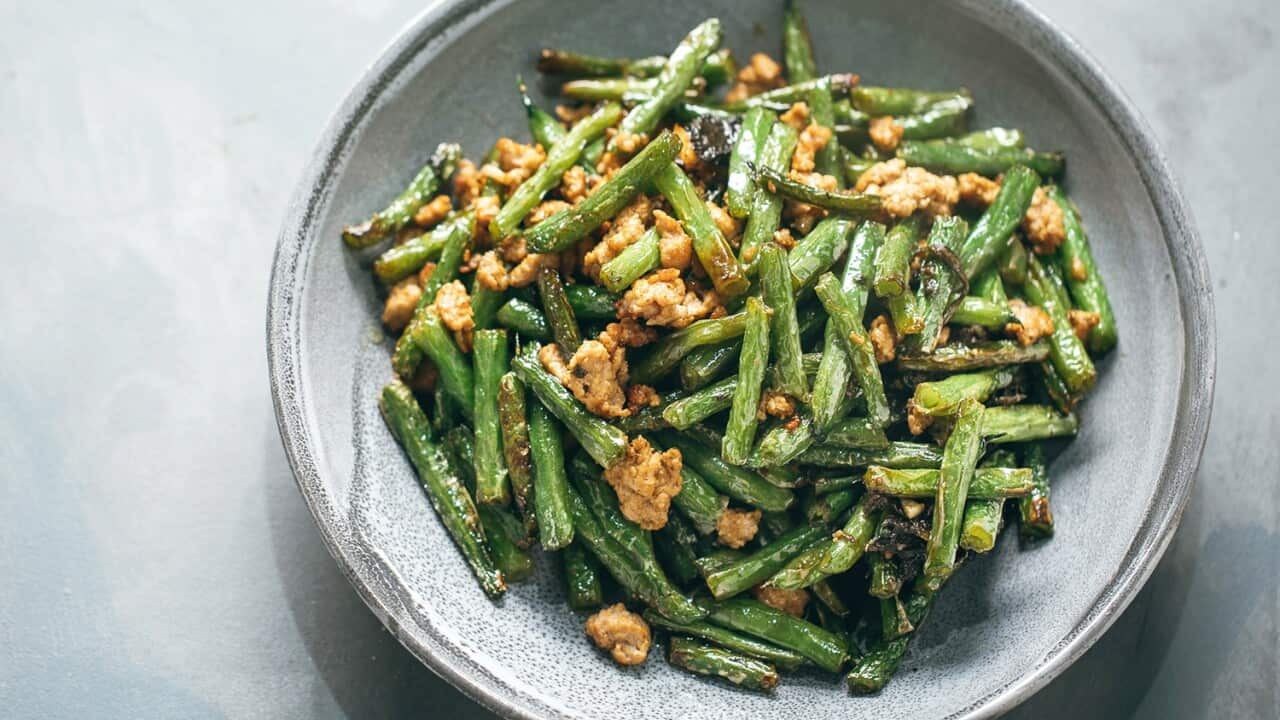What's not to love about sticky rice? It's chewy, bouncy and full of Q*. Nothing else compares. Even the most expensive rice types don't match it.
Sticky rice, otherwise known as glutinous rice, is versatile. In Thailand, sticky rice is mixed with coconut and served with juicy mango. In Korea and Japan, sticky rice is smashed and pounded with large wooden hammers to make a range of sticky sweets. These are most commonly served with sweet red bean paste or nutty sesame seeds. In Malaysia and Singapore, you'll find desserts called kuih. These are made up of pandan and sticky rice. But it's in Taiwan where I am truly in sticky rice heaven.
In Taiwan, you can find sticky rice in all its glistening, pearly white glory: stir-fried with Taiwanese sausage and drizzled with sesame oil, wrapped around a Chinese doughnut for an excellent lunch on the run, and of course, stuffed in lotus root - a delicious end to a gourmet Chinese meal in a fancy restaurant. The dessert comes soaked in a sticky and sweet syrup - not to everyone's taste, but definitely to mine.
But one of the most iconic and much-sought-after sticky-rice dishes is zongzi, a pyramidal sticky-rice parcel, stuffed with fillings, such as pork belly, and wrapped tightly in bamboo leaves. It's meant to be eaten during the Chinese Dragon Boat Festival, which lands on 3 June this year.
Zongzi was made to honour a Chinese poet, Qu Yuan, who took his own life in the very same river in China where Dragon Boat Festival activities run to this day.
Salty and savoury zongzi is a perennial favourite for all ABCs (Australian Born Chinese people). But if you are like me and have a mother who loves sweet things, you'll also be familiar with sweet zongzi, which is more commonly made with sweetened red bean paste.
There should be no surprise that there are more than a dozen varieties of zongzi around Asia, with many regions having their own specialties.
In Hong Kong and Ningbo in China, people eat lye zongzi. This is somewhat savoury. The sticky rice is soaked in lye before it's cooked. However, the snack is eaten as a sweet and is dipped in sugar.
In Northern China and Taiwan, zongzi comes stuffed with red-bean paste and candied red dates. Then it's steamed or boiled in water and eaten as a dessert. Sticky rice for dessert? Absolutely. I have no qualms about eating carb-heavy sweets in the middle of the night or in the early hours of the morning when zongzi cravings strike.
My fondest cooking memories are those leading up to the Dragon Boat Festival. My mum would go to a Chinese grocery store and buy zongzi ingredients: bamboo leaves, kilos of sticky rice, pork belly and other fillings.
Mum would whip out her heavy-duty pot, which is used once a year to boil zongzi in bundles of up to 30 at one time.
Days preparing zongzi were intense. They involved washing, cleaning and prepping the ingredients. This was tiresome but rewarding. Mum began by making the savoury version. She'd stuff and fold each zongzi by hand like a master origami maker.
There was nothing better than coming back from school and being welcomed by the fragrant smells of freshly made zongzi.
Thankfully, there was always sticky rice leftover, so mum conveniently whipped out her pre-made sweet, red-bean paste and began stuffing them to make sweet zongzi.
It was beautiful. There was nothing better than coming back from school and being welcomed by the fragrant aroma of freshly made zongzi.
What's even better, you can keep zongzi long after the Dragon Boat Festival if you freeze it. Sadly in my household, we never have leftovers but my aunty testifies that they freeze well.
Happy Zongzi Festival everyone! 端午節快樂!
*In Taiwan, Q refers to a dish's bounce. If someone says your dish is Q, you are seen as a great cook.












